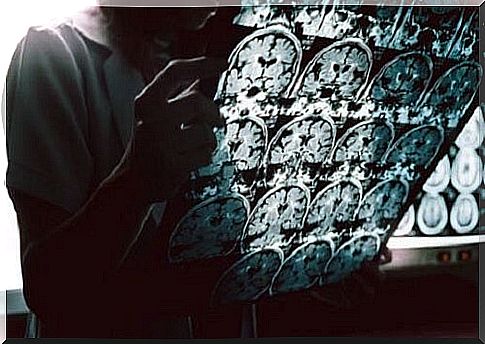Can Poor Sleep Increase The Risk Of Alzheimer’s Disease?

Today , the risk of Alzheimer’s disease has also risen in young people.
No fully clear causes have yet been identified for this deterioration process. However, this disease shows an increasing number of cases all over the world.
Your brain is a multi-tasking organ. In fact, all biological processes are connected with the brain. After all, they are responsible for ‘sending commands’ to all cells in your body.
Alzheimer’s disease is one of the most common neurological problems in human beings. Recent studies have supported the belief that poor sleep may increase the risk of Alzheimer’s disease.
The main symptoms of Alzheimer’s disease

We commonly know Alzheimer’s disease as dementia. That’s also why we usually associate it with older age.
Dementia is considered to be loss of memory and loss of intellectual abilities.
By its very nature, aging implies the appearance of some indications of dementia. The nerve cells begin to die. Your brain is no longer able to renew itself.
In the case of Alzheimer’s disease, however, dementia is one of the consequences of a serious brain disorder.
The neural decline here can be so intense that it radically changes your personality and behavior. Some patients even show serious identity problems.
Indeed, Alzheimer’s disease is more common in older adults. Still, it can affect people of all ages. This is especially true for those who exhibit risk factors.
There are many factors that pose a risk for Alzheimer’s disease. We give some examples.
Risk Factors
- Tobacco addiction
- Alcoholism
- Use of Addictive Substances
- An unbalanced diet
- Diseases
- Accidents
The main symptoms in patients with Alzheimer’s disease
- Memory loss that makes daily activities more difficult.
- Having a hard time solving simple problems.
- Loss of spatial awareness or sense of time.
- Difficulty interpreting images.
- Problems with the written or spoken language.
- Putting objects in strange places or having a hard time finding them.
- Inability to make decisions and loss of good judgment.
- Loss of initiative or motivation.
- Changes in humor, behavior or personality.
Is there a link between poor sleep and the risk of Alzheimer’s disease?
The brain experiences a form of accelerated erosion in people who sleep very little or not well.
- In fact, sleep is linked to many problems in your body. It is in fact directly linked to the metabolism of the cells of the body.
- Sleep can affect all organs. It can also increase your susceptibility to pain and cause memory loss. It can also weaken the immune system.
All this has to do with the main function of sleep. It gives your body peace of mind.
An organism without rest is like a machine that keeps going without stopping. Sooner or later it will go wrong.
A lot of sleep or a good night’s sleep?

Contrary to popular belief, it’s not just about getting too little sleep. The amount of sleep does not guarantee the quality.
Some people who are healthy sleep only 5 to 6 hours a day. Others are constantly tired while sleeping for 12 hours.
In contrast, it is the quality of sleep that plays a role. It determines the increase in the production of 2 of the main biological indicators of this disease:
- beta amyloid
- tau proteins
The accumulation of the beta-amyloid proteins forms an enormously toxic plaque on the nerve cells in the brain. The accumulation of the tau proteins, meanwhile, can cause neurofibrillary tangles. They are extremely destructive to the brain.
The link between sleep and Alzheimer’s disease

There is still debate about what exactly causes and what is the consequence of Alzheimer’s disease. Certain toxic substances are characteristic of this disease. However, these substances can also cause poor sleep.
All this also confirms the need to take care of the quality of your sleep.
You can achieve a better night’s sleep in simple ways. However, it is almost always a matter of changing your daily attitude:
- reduce your stress
- train your body through sport and exercise
- impose restrictions on your personal and professional life
You also need to set aside moments to entertain and relax yourself. In addition, make sure you follow a healthy diet.
If you notice any symptoms, it is important that you see your doctor. The risk of Alzheimer’s disease is not a game. It can prevent you from enjoying a quality life.









